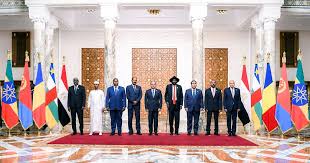
Rival Sudanese political factions met in Cairo for reconciliation talks, marking the first such gathering since the conflict began 15 months ago. However, deep divisions and the absence of key military actors limited the prospects for meaningful progress.
The Democratic Bloc, aligned with the army, refused to hold joint sessions with the Taqaddum faction, accusing them of sympathizing with the Rapid Support Forces (RSF). Neither the army nor the RSF attended the talks, further diminishing hopes for a breakthrough.
The ongoing war has displaced almost 10 million people and sparked warnings of famine and ethnic violence. Recent RSF advances in Sennar state have exacerbated the humanitarian crisis. Previous U.S. and Saudi-sponsored negotiations in Jeddah failed to produce results.
While Egypt managed to bring some parties together, fundamental disagreements persisted. The factions only agreed to form a small subcommittee to draft a communiqué calling for an end to the war, which some key leaders refused to sign.
Jibril Ibrahim, Finance Minister, expressed skepticism about the talks, citing the need for RSF withdrawal from civilian areas and an end to alleged UAE support for the RSF. Former Prime Minister Abdallah Hamdok, leading the Taqaddum coalition, rejected accusations of RSF links and called for patience in the peace process.
With multiple overlapping peace initiatives underway, diplomats and participants acknowledged the complexity of the crisis and the need for sustained efforts to resolve Sudan’s devastating conflict.
